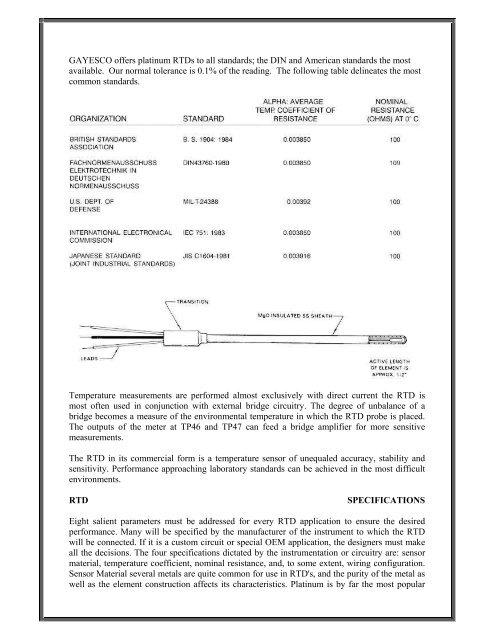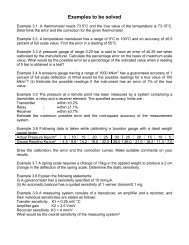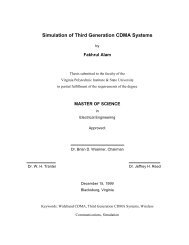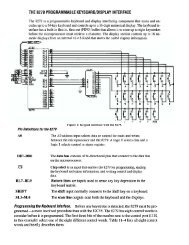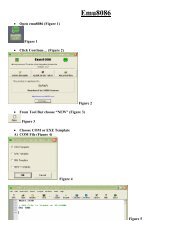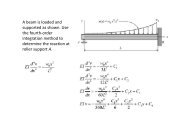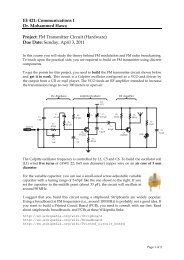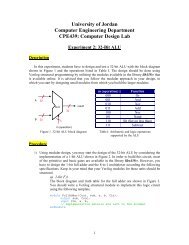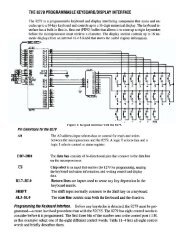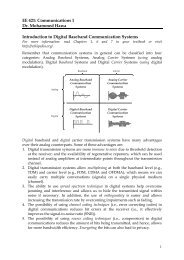Measurement Lab. Resistance Temperature Detector (RTD) - FET
Measurement Lab. Resistance Temperature Detector (RTD) - FET
Measurement Lab. Resistance Temperature Detector (RTD) - FET
You also want an ePaper? Increase the reach of your titles
YUMPU automatically turns print PDFs into web optimized ePapers that Google loves.
GAYESCO offers platinum <strong>RTD</strong>s to all standards; the DIN and American standards the mostavailable. Our normal tolerance is 0.1% of the reading. The following table delineates the mostcommon standards.<strong>Temperature</strong> measurements are performed almost exclusively with direct current the <strong>RTD</strong> ismost often used in conjunction with external bridge circuitry. The degree of unbalance of abridge becomes a measure of the environmental temperature in which the <strong>RTD</strong> probe is placed.The outputs of the meter at TP46 and TP47 can feed a bridge amplifier for more sensitivemeasurements.The <strong>RTD</strong> in its commercial form is a temperature sensor of unequaled accuracy, stability andsensitivity. Performance approaching laboratory standards can be achieved in the most difficultenvironments.<strong>RTD</strong>SPECIFICATIONSEight salient parameters must be addressed for every <strong>RTD</strong> application to ensure the desiredperformance. Many will be specified by the manufacturer of the instrument to which the <strong>RTD</strong>will be connected. If it is a custom circuit or special OEM application, the designers must makeall the decisions. The four specifications dictated by the instrumentation or circuitry are: sensormaterial, temperature coefficient, nominal resistance, and, to some extent, wiring configuration.Sensor Material several metals are quite common for use in <strong>RTD</strong>'s, and the purity of the metal aswell as the element construction affects its characteristics. Platinum is by far the most popular


